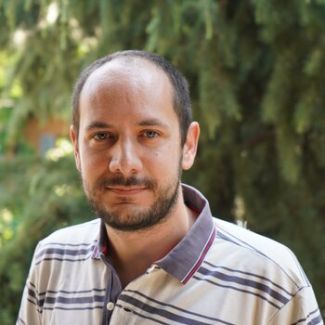
Tommaso Bertoni, Ph.D.
Dr. Tommaso Bertoni obtained a BSc in Physics from the University of Milan (Italy), and a MSc in Complex Systems Physics from the University of Paris VI. During his MSc, he conducted research on bacterial genome biophysics (University of Cambridge) and on sensorimotor integration in larval zebrafish (Paris VI). In April 2021, he obtained a PhD in neuroscience from the University of Lausanne, under the supervision of prof. Andrea Serino. The PhD project investigated the multisensory-motor bases of bodily self-consciousness using mathematical modelling of psychophysical data, computational modelling and electrophysiological analyses. As a MINDED fellow, he will investigate the predictive sensorimotor mechanisms involved in action awareness using EEG-based brain-machine interfaces.
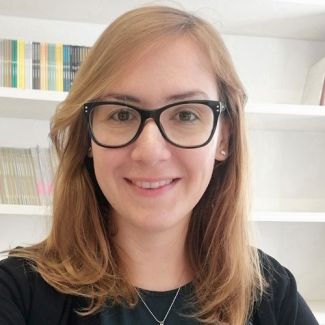
Giulia Borghini, Ph.D.
Dr. Giulia Borghini obtained her BSc in Speech and Language Therapy at the University of Milan (Italy), and gained clinical experience working as a Speech and Language Therapist in a Child and Adolescent Psychiatric Unit. In 2014, she received a Master Degree in Cognitive Neuroscience from University College London, where she investigated the role of alpha waves on the working memory and inhibitory abilities in the healthy ageing brain. She completed her PhD in Speech Neuroscience at University College London in 2019, investigating how changes in pupil diameter can be exploited to study listening effort while attending to a non-native language. During her PhD, she was a visiting student at the University of Washington to study data analyses and signal-processing techniques. Before joining the MINDED programme, she worked as a Post Doc Researcher at IIT, within the Cognition, Motion and Neuroscience group. Her current research focuses on applying pupillometry to understand whether children with Autism Spectrum Disorder are able to exploit kinematic information encoded in an observed movement to anticipate other’ movement intentions.
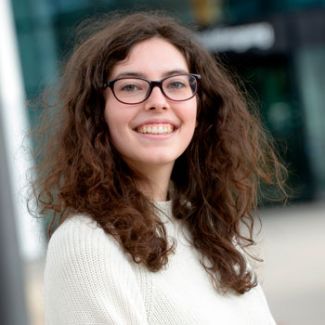
Pauline Chevalier, Ph.D.
Dr Pauline Chevalier obtained her BSc and MSc in Electronic Engineering at the University Pierre et Marie Curie (France) and her PhD in Informatics at the University Paris-Saclay (France). Her Ph.D. thesis, obtained in December 2016, was done at the Robotics and Computer Vision Lab (ENSTA-ParisTech, France) under the supervision of Adriana Tapus, Jean-Claude Martin and Brice Isableu. The subject was on the impact of visual and proprioceptive sensory preferences of individuals diagnosed with Autistic Spectrum Disorder (ASD) on their social skills during human-robot interactions. Then, she worked as a postdoctoral fellow at the University of Twente (The Netherlands) in the HMI lab, with Vanessa Evers and Dirk Heylen. There, she joined DE-ENIGMA, a H2020 European project which aims to design robot-assisted interventions to teach emotions to children diagnosed with ASD. Throughout her experience in the area of robot-assisted interventions for children diagnosed with ASD, she observed that sensory sensitivities were seldom-considered, whereas they showed to have an impact. Thanks to the MINDED programme, she will explore and investigate sensory sensitivity of children diagnosed with ASD, with the approach of robot-assisted intervention techniques. She aims to bring insights for better and more adapted human-robot interaction but also for diagnosis and therapy for children diagnosed with ASD.
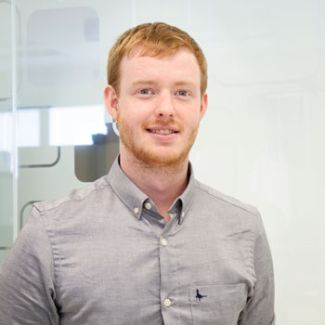
Nathan Foster, Ph.D.
Dr Nathan Foster obtained is undergraduate and postgraduate science degrees in Sport Psychology at the Research institute for Sport and Exercise Sciences, Liverpool John Moores University, UK. Before joining the MINDED programme, he completed his doctoral training under the supervision of Dr Spencer Hayes (director of studies) and Prof. Simon Bennett at the Research institute for Sport and Exercise Sciences, and Prof Digby Elliott at McMaster University, Canada. His programme of work examined how processes associated with sensorimotor integration modulate sensorimotor learning and control in autism spectrum disorders.
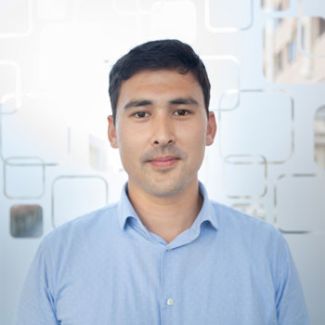
Thomas Moore, Ph.D.
Dr. Thomas Moore received his BSc from Clemson University in Bioengineering with a focus on biomaterials. He continued at Clemson and received his PhD in Bioengineering under the direction of Prof. Frank Alexis. His dissertation work was focused on developing theranostic nanoparticles for treating cancer. Before joining the MINDED programme, Thomas worked as a postdoctoral researcher at the Adolphe Merkle Institute in Fribourg, Switzerland under Profs. Alke Petri-Fink and Barbara Rothen-Rutishauser where he studied fundamental interactions of nanoparticles with biological systems. His research interests include understanding particle transport across biological barriers, particles in hydrodynamic systems, and colloidal behavior of particles in complex media.
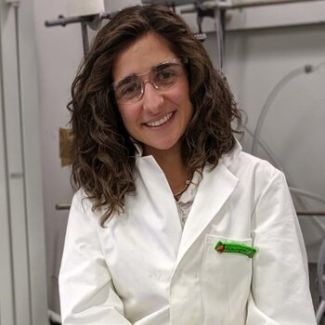
Veronica Papa, Ph.D.
Dr. Veronica Papa achieved her MSc Degree in Chemistry at the University of Naples “Federico II” discussing the thesis “Catalysts based of Zn(II) for esterification and trans-esterification in homogeneous conditions”. In January 2016, she started her PhD in Catalysis at the Leibniz-Instituts für Katalyse e.V. at University of Rostock (LIKAT Rostock) under the supervision of Prof. Matthias Beller and her PhD project concerned manganese- and cobalt-based catalysts for homogeneous hydrogenations.
Whilst completing her PhD thesis, she spent six months as visiting PhD student at University of Groningen under the supervision of Prof. B. L Feringa; this enriching experience inspired her current project in IIT. Her research activities focus on the design and the development of molecular machines for the conveyance of nanoparticles through biological membranes.
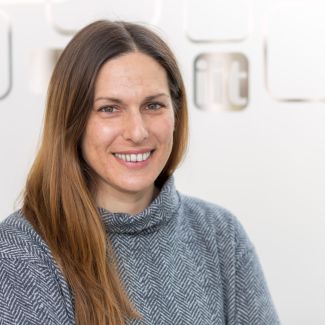
Corinne Portioli, Ph.D.
Dr Corinne Portioli received her BSc in Biotechnology and MSc in Medical and Pharmaceutical Biotechnology from the University of Modena and Reggio Emilia, IT. She then obtained a PhD in Neuroscience at the University of Verona, IT and Doctor Europaeus due to her Visiting PhD student experience at the University of Manchester, UK. Corinne joined IIT (Cancedda and De Vivo Labs) in 2017 before moving to Baylor College of Medicine, US (Zhou Lab) to work on structural biology projects aimed at finding new cures for neurological diseases. From 2019 to 2021 she was Marie Skłodowska-Curie Individual Fellow (GF) Researcher with a project focused on elucidating the structure-function relationship of NKCC1, ion co-transporter, a promising drug target for neurodevelopmental disorders. She joined MINDED programme in July 2021 to work on the in vitro and in vivo characterization of drug delivery systems in neurodevelopmental disorders. Her research field focuses on the use of an interdisciplinary approach (cell/molecular biology, structural biology, computational chemistry and nanomedicine) to tackle the need of novel therapeutic treatments in neurological disorders.
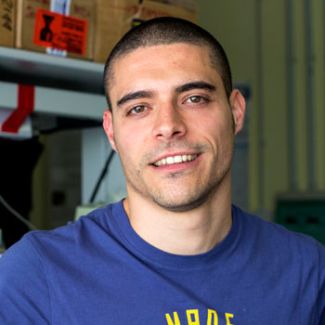
Alessandro Simi, Ph.D.
Dr Alessandro Simi obtained his BSc and MSc in Medical and Pharmaceutical Biotechnologies at the University of Genova and his PhD in Neuroscience and Brain Technologies at UniGe - Istituto Italiano di Tecnologia of Genova. He moved to Lausanne (Switzerland) in Dr Mehdi Tafti’s group at the Center of Integrative Genomics (CIG) where he took part in the “Sleep-in-a-dish” research project studying sleep-like behavior in neuronal cortical cultures using microelectrode array technology. Before joining the MINDED programme, he worked as a Post Doc Fellow in M. Studer’s lab at Institut de Biologie Valrose in Nice (France), where he investigated the role of transcription factors in cortical development and neurodevelopmental disorders.
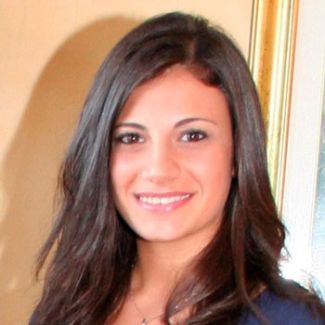
Elsa Zacco, Ph.D.
Dr Elsa Zacco graduated in Molecular Biotechnologies at the University of Milano-Bicocca in partnership with the University of Birmingham, where she carried out her MSc research. She obtained her PhD in Medicinal Chemistry at the Free University of Berlin, during which she developed peptide-based scaffolds for the delivery of biologically-relevant molecules for vaccine development and gene therapy. Before joining the MINDED programme, Elsa was awarded the Newton International Fellowship and joined the lab of Prof Annalisa Pastore at King’s College London, within the Dementia Research Institute. She was then hired as Associate Research Fellow to carry out her studies on the molecular mechanism of dementia and ALS. Her research interest focuses on protein misfolding and protein-RNA interaction in neurological disorders.
Former Minded Fellows
- Michel Akselrod, Ph.D
- Hamed Arami, Ph.D.
- Nuria Rius Camps, Ph.D.
- Alexander Cook, Ph.D.
- Valerio Di Carlo, Ph.D.
-
Koray Ertan, Ph.D.
- Purnima Manghnani, Ph.D.
-
Martina Pannuzzo, Ph.D.
- Jean-François Patri, Ph.D.
- Arunkumar Pitchaimani, Ph.D.
- Alessandra Sclip, Ph.D.
- Ilse Van Der Werf, Ph.D.
-
Elena Bellotti, Ph.D.
-
Shoshy Mizrahy, Ph.D.
-
Sayanti Brahmachari, Ph.D.
-
Lucilla Cardinali, Ph.D.
-
Wei Chien, Ph.D.
-
Peter Gawne, Ph.D.
-
Claudia Giambartolomei, Ph.D.
-
Ana Martins, Ph.D.
-
Flávia Cristina Moreira de Sousa, Ph.D.
-
Dr. James Strachan, Ph.D.